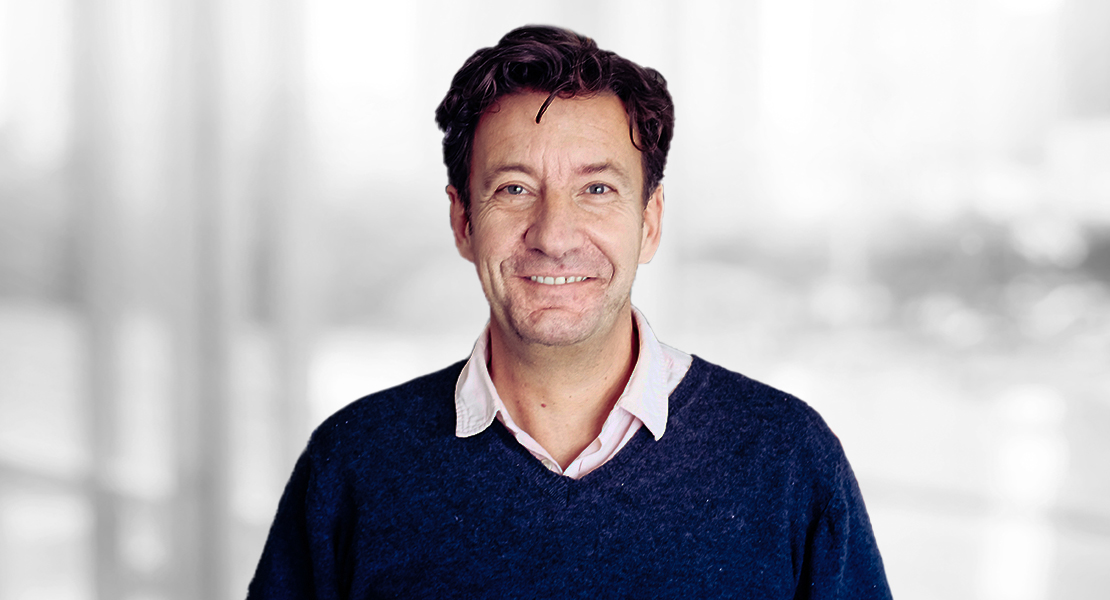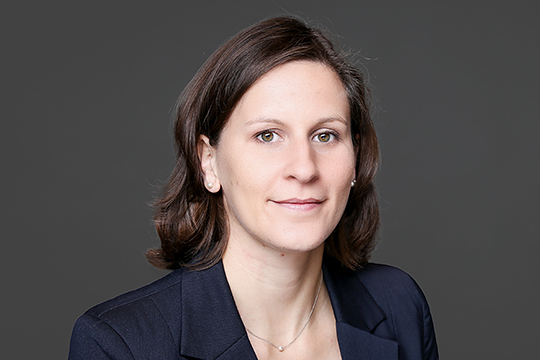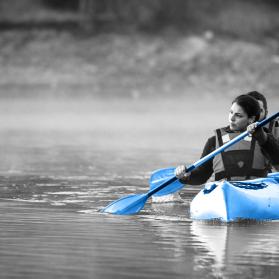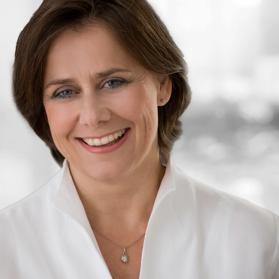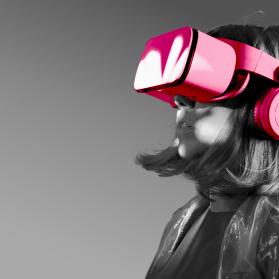As a partner of the communications office E105, Dr. Bernhard Zünkeler already accompanied the New Work Transformation at Detecon almost 10 years ago. As Chief Curator, he was responsible for the artistic design of our premises together with the artist collective freeters - a catalyst for creativity and innovation. In our series "Working in the New Reality", Dr. Tanja Matt spoke with CEO Dr. Bernhard Zünkeler about the office worlds of the future and how the global Corona crisis is affecting offices, home offices, and team collaboration.
Dr. Tanja Matt: The Corona crisis took us all by surprise at the beginning of 2020 and has since permanently changed the world of work. In your view, what are the most important changes with regard to office worlds / "places"?
Dr. Bernhard Zünkeler: The Corona crisis has accelerated in an extreme way a process that has been unstoppably underway since the development of smartphones and the connection to the Internet. In this process, I see two directions of change:
1. places are no longer to be understood only in analog terms, but will increasingly find a digital component. Movies like Ready-Player-One by Steven Spielberg or Avatar by James Cameron and computer games like Minecraft give a small taste of where the journey of virtual space can go.
2. the place of physical gathering is becoming increasingly important, especially for collective creative processes, and the classic company individual workstation is becoming less important. Many time-consuming individual tasks are increasingly replaced by algorithms, or individual work is done on the move from another location that allows greater individual freedom than "showing up at the office". However, for collective creative processes and also team building, the physical sensory experience is an important pillar to drive innovation. In this context, space should be interpreted in a completely different way than the currently prevailing "neutral state" of the corporate facilities.
How does the (changed) working environment influence the way of working or collaboration?
Generally speaking, any inner attitude towards the task can be changed by the setting. In his book "Thinking, Fast and Slow" Daniel Kahneman has adequately described how this so-called priming effect of our intuition works. Everyone can test this on himself. In a concert hall, a greenhouse or a swimming pool, you simply think different thoughts than in an office. You approach the task at hand differently. This not only has something to do with concentration, but is much more complex and can be significantly increased. Historically, the Cistercian order in particular, with its Europe-wide monastic buildings and the corresponding functional-psychological orientation, has shaped our urban organization of public space and our social understanding of buildings for centuries. Somehow these insights have been lost in the course of an extreme industrial-functional emphasis on quantitative growth. The progressive need for true qualitative innovation will hopefully ensure that the human component and embedding in sustainable processes will reverse this trend of the last 200 years.
Specifically, the impact of the work environment on work practices can be seen in collective processes in particular. The key drivers of motivating collaboration include inspiration, imagination and improvisation. These three key factors for innovation can be ideally supported by appropriate room designs, because physical traces are left in a very striking and sustainable way. These traces can only be created to a limited extent through Zoom events or shared formats such as Slack or CEO newsletters. The sensual element comes up a bit short there to be truly effective beyond digital efficiency. After all, despite all the progress, evolution-wise, we've just "jumped off the trees." I am convinced that we are currently falling far short of our design potential. We need more courage! A visit to the impressive Pantheon in Rome is quite revealing. The building was erected 2000 years ago. I can't imagine that today's office buildings are really considered inspiring in the year 4021.
Currently, people are working from home wherever possible - to avoid or reduce the risk of infection. And it is already foreseeable that home offices will remain a constant in working life even after the end of the pandemic. Nevertheless, it will not be able to completely replace the physical gathering of employees. What can the office as a place do that the home office cannot? How are these hybrid work models, with an average of 40% mobile working, reflected in the premises? Do we now only go to the office for personal, social interaction?
In my opinion, this has a lot to do with the phenomenon of identity. Ultimately, the space at home is shaped by the individual identity of the employee and his or her family. The workplace, on the other hand, has the opportunity to align identity with the collective cooperation of all employees and thus to strongly shape joint commitment, motivation and a sense of togetherness. In this respect, places of physical gathering and their identitary design will become much more important in the coming years in order to balance out the centrifugal forces of decentralized working.
As far as hybrid work models and corresponding spaces are concerned, we are only at the very beginning. I already said that virtual space will become a force of its own and will actually define hybrid work. Right now, there is a kind of combination of collective work with ICT means, where ICT is still more or less done in practiced collaborative formats. Accordingly, operational spaces are now being set up everywhere that are technically equipped in such a way that "colleagues" can be "brought in" at any time. The hybrid understanding will change tremendously once again when we see how we can "bring in" completely new forms of encounters and personal performance accelerators with AI and virtually optimized space.
Ideally, a company's premises also reflect its identity and are an integral part of the employee experience or employer branding and the corporate brand. As such, they also contribute to employee loyalty and customer impact. What will the office have to score with in the "new home office age" in order to be perceived as an attractive working environment?
That can be summed up in one word: Emotion. We need spaces that support, above all, the extremely complex processes of our creative mind. At the moment, we still live in a kind of functional-rational world of equipment. In my opinion, this will change in favor of a functional-emotional approach, because only in this way will I be able to retain groups of highly specialized and self-reliant employees in the long term. Corona will reinforce this trend toward emotionality.
What opportunities do companies have in the transition or in shaping the New Normal?
To be honest, we will see one thing above all in the next few years: that normality is an illusion. It always has been. But now, in VUCA-land, it is becoming even clearer that we should say goodbye to a linear understanding of processes. It is necessary to acknowledge the high complexity and the inherent dynamics of uncontrollable forces. Basically, our brain is the best example of how to best adapt to the coincidences of life. There have always been processes of upheaval. In this respect, every company is well advised to take a closer look at the fundamental laws of physics, chemistry and biology and not to swim behind every fashion trend.
I am convinced that the greatest advantages from the so-called New Normal will be gained by those who specifically deal with evolutionary processes and neuronal forms of organization. This may be a bit more difficult at the beginning, as various "standard attitudes" of "simple, straightforward and planned" have to be overcome in the industry. But in the end, the companies that have learned to "surf with their mistakes" and not just chase after the supposedly "simplest" solution, simply because no one has the patience to devote sufficient leisure to a complex issue, have the greatest chances of survival. In the future, it can take a lot of revenge to focus only on focus and speed.
Companies that take these new directions to heart can unhinge entire industries. With the power of AI, it will be possible in the future to fundamentally reorder existing power relationships.
Thank you, dear Bernhard, we wish you and your team all the best for the future.
Bernhard Zünkeler studied law and received his doctorate with a thesis on the European free movement of workers. For more than ten years, he worked as a lawyer and focused on restructuring processes in international companies. In 2009, he co-founded the research institute artlab21, from whose work the art laboratory ESMoA in Los Angeles emerged in 2012. As a partner of Orange Council, he was primarily concerned with the integration of art thinking into operational processes and the implementation of unconventional solution approaches. Since 2020, he has been managing director of E105, helping companies and institutions to embed innovation culture in practice.

